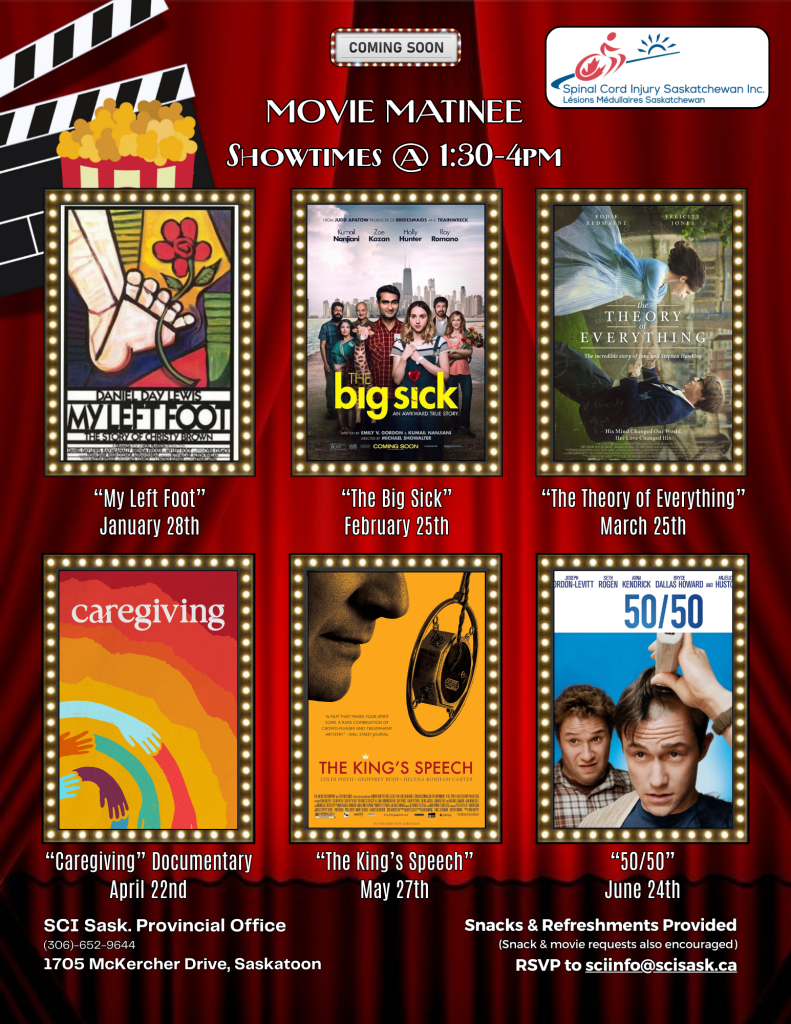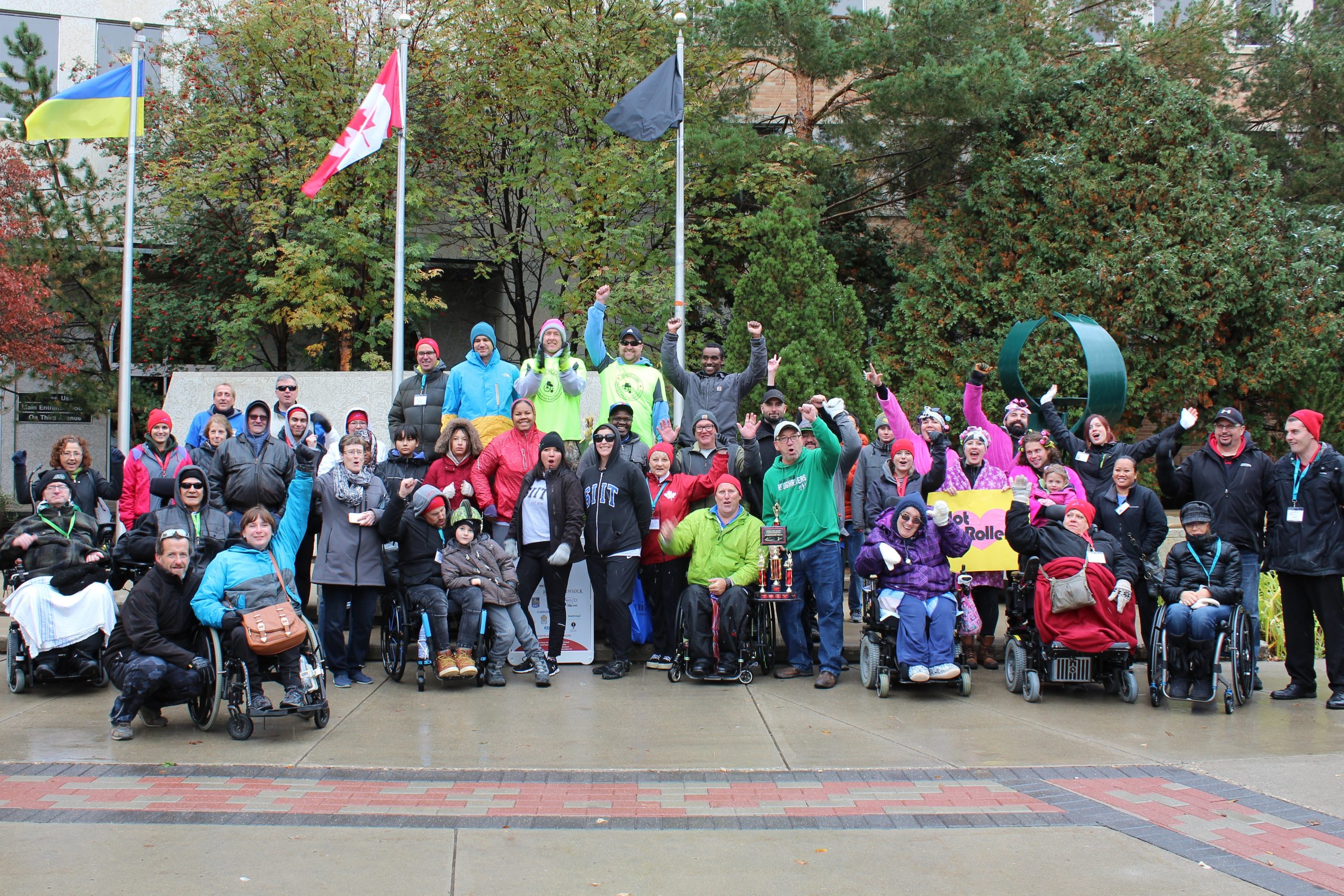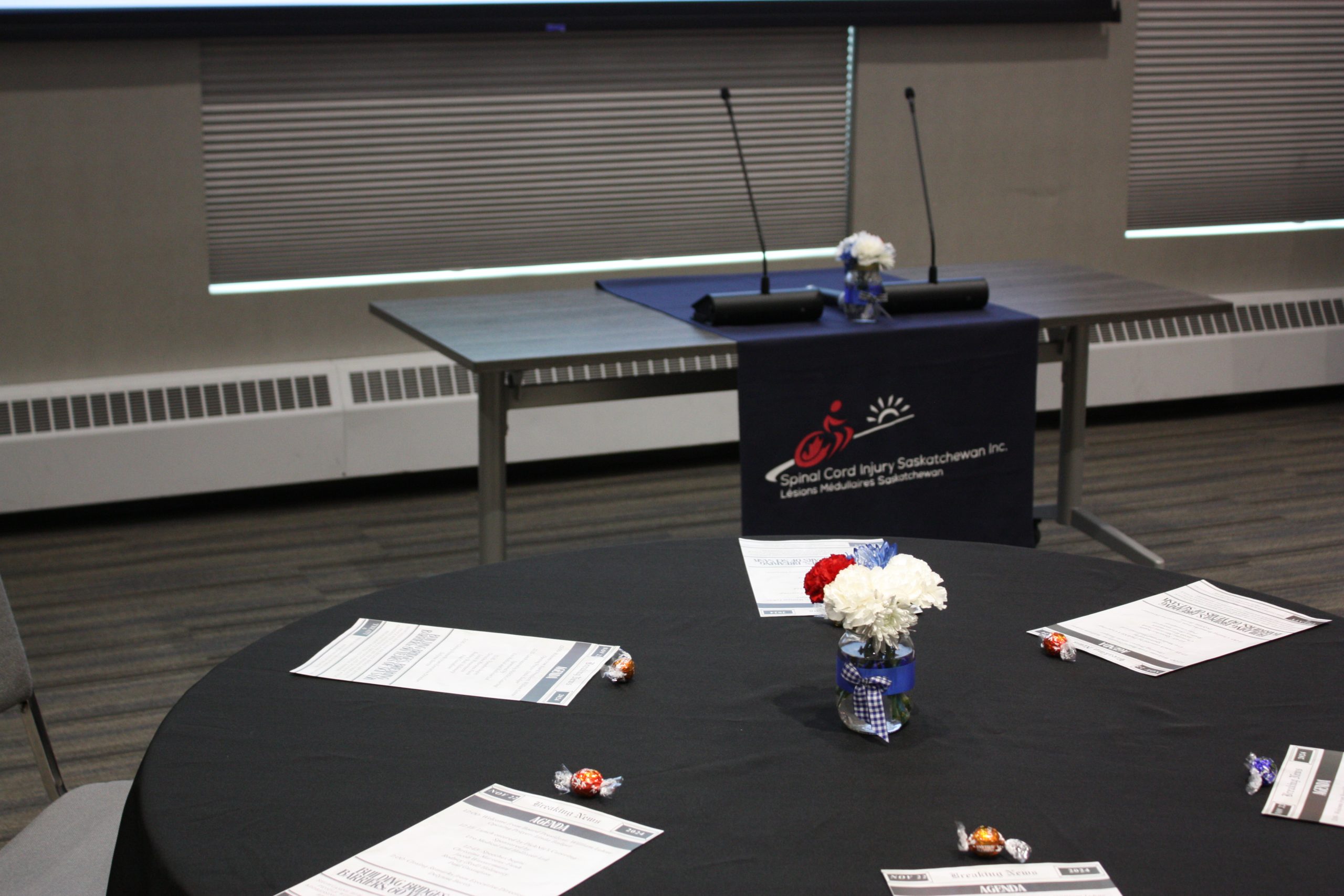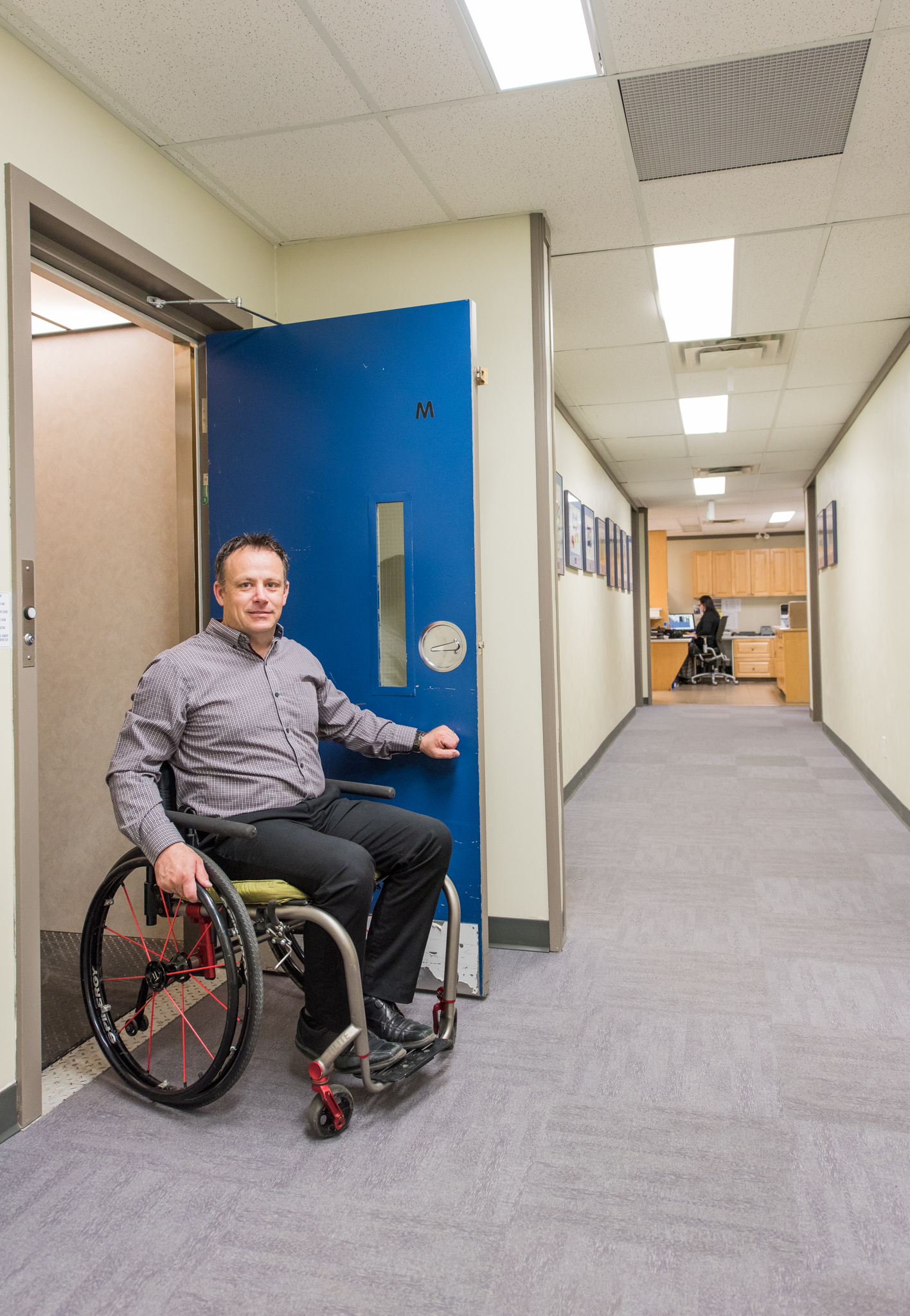What's happening at SCI Sask
Get your golf clubs ready Saskatoon, we are coming to you!
 We are excited to announce August 8, 2026 for our 7th Annual Fundraiser Golf Tournament. Tee the date on your calendar and assemble your team, we’ll see you at the City of Bridges!
We are excited to announce August 8, 2026 for our 7th Annual Fundraiser Golf Tournament. Tee the date on your calendar and assemble your team, we’ll see you at the City of Bridges!
SCI Sask Movie Matinee Saskatoon line ups!

New Year, New and Improved Movie Matinee! Come and join us for movies you’ll sure to love. Don’t worry about snacks and refreshments, we got you.
RSVP today to your CSS, or email sciinfo@scisask.ca
News and Updates
Freshly brewed, just for you!
New year new pot of coffee, freshly brewed as always, delicious and perfect just the way you like it! Join us for a cup, or…
Thank you Regina, you helped made our Regional Holiday Gathering a vibrant and festive evening!
Our Regina holiday gathering was a great success with a wonderful turnout, and everyone had an amazing time enjoying the food, prizes, and time together.…
Thank you for making our Provincial Holiday Gathering a magical evening!
Thank you to all of our supporters, community partners, donors, volunteers, and our amazing community members for making our Provincial Holiday Gathering a magical evening…
Events Calendar
- February 18, 2026
-
-
SCI Sask Peer Mentor Network Virtual Gathering: Nutritional Needs in the cold weather
February 18, 2026 @ 6:30 pm - 8:00 pm
Featuring guest speaker Dietician Brooke Bulloch.
Brooke will advise us on how to overcome seasonal affects of winter through diet and nutrition.
RSVP today to your CSS or email sciinfo@scisask.ca
-
- February 25, 2026
-
-
SCI Sask Movie Matinee Saskatoon Presents: The Big Sick
February 25, 2026 @ 1:30 pm - 4:00 pm
1705 McKercher Dr, Saskatoon, SK S7H 5N6, Canada
Pakistan-born comedian Kumail Nanjiani and grad student Emily Gardner fall in love but struggle as their cultures clash. When Emily contracts a mysterious illness, Kumail finds himself forced to face her feisty parents, his family's expectations, and his true feelings.
Starring Kumail Nanjiani and Zeo Kazan. Check out the trailer here: https://www.youtube.com/watch?v=jcD0Daqc3Yw
RSVP Today by email or call your CSS, or email sciinfo@scisask.ca
Snacks and refreshments are on us!
-
- March 18, 2026
-
-
SCI Sask Peer Mentor Network Virtual Gathering: Springing Into Summer with Physical Activity
March 18, 2026 @ 6:30 pm - 8:00 pm
Guest Speaker and additional information to be provided!
RSVP today to your CSS or email sciinfo@scisask.ca
-
- March 25, 2026
-
-
SCI Sask Movie Matinee Saskatoon Presents: The Theory of Everything
March 25, 2026 @ 1:30 pm - 4:00 pm
1705 McKercher Dr, Saskatoon, SK S7H 5N6, Canada
The incredible story of Jane and Stephen Hawking.
Starring Eddie Redmayne and Felicity Jones. Check out the trailer here: https://www.youtube.com/watch?v=Salz7uGp72c
RSVP today by email or phone to your CSS, or email sciinfo@scisask.ca
Snacks and refreshments are on us!
-
February 2026 |
||||||
|---|---|---|---|---|---|---|
| Mon | Tue | Wed | Thu | Fri | Sat | Sun |
|
1
|
||||||
|
2
|
3
|
4
|
5
|
6
|
7
|
8
|
|
9
|
10
|
11
|
12
|
13
|
14
|
15
|
|
16
|
17
|
18
|
19
|
20
|
21
|
22
|
|
23
|
24
|
25
|
26
|
27
|
28
|
|






